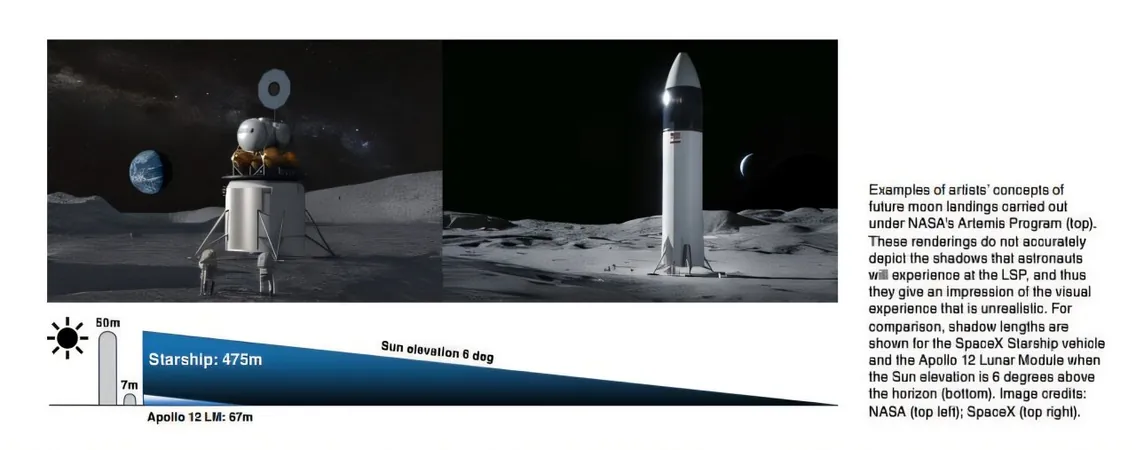
EU's USB-C Charging Mandate: What You Need to Know!
2024-12-27
Author: Jacob
A Closer Look at the Directive
Back in June 2022, EU nations and parliament struck a tentative deal regarding the common charging solution, which was formalized by October. By December 28th, 2024, all EU countries must have integrated these regulations into their national laws, compelling companies operating within the bloc to comply.
Which Devices Are Affected?
The directive's broad scope means that both consumers and businesses will feel the impact. It applies to any electrical or electronic products that intentionally emit or receive radio waves for communication. This includes a wide array of gadgets like mobile phones, tablets, cameras, headphones, game consoles, portable speakers, and more.
However, not all devices fall under this umbrella. High-power devices such as gaming consoles like the PS5 won’t comply since they exceed the maximum power rating set forth by the directive. Interestingly, laptops have a grace period, with compliance demanded by April 28, 2026.
Clarification Needed
While the list covers many widely used devices, some areas still remain vague. Drones, for instance, are not explicitly mentioned, and there's ongoing debate as to whether they should fall under the categories defined by the directive. The EU Commission has committed to continually evaluating technological developments to ensure the regulations remain relevant.
What About Wireless Charging?
Currently, the directive does not incorporate wireless charging methods. The EU plans to promote harmonized practices in this area to prevent fragmentation, but specifics are still yet to emerge.
A Shift in Consumer Experience
Consumers in the EU will find that the majority of tech already makes use of USB-C ports. Even Apple, once the poster child for proprietary charging technology, has transitioned to USB-C for most of its devices recently.
Notably, while proprietary ports haven’t been banned outright, all new hardware will need to support USB-C charging. Thus, laptops like the MacBook that offer multiple charging methods (including Apple’s MagSafe) can continue to do so.
What Happens Post-Deadline?
After the December 28th deadline, items that do not meet the USB-C requirement cannot be sold within the EU. Apple is reportedly phasing out its iPhone 14 and other Lightning connector devices from its EU stores in preparation for compliance. That said, products already in circulation that were placed on the market before this deadline will still be allowed to sell, meaning some previous models could remain available for a time.
Fast Charging Simplified
A lesser-known section of the directive aims to unify fast charging practices across devices. Fast charging is now defined as any method using voltages above 5 volts and currents exceeding 3 amperes, with compliance to USB Power Delivery (USB PD) required. This ensures that devices offering fast charging can utilize any compatible charger, potentially making life easier for consumers.
Goodbye Free Chargers!
One of the most significant changes consumers will see is the end of bundled chargers with new devices. This aims to reduce waste by minimizing the number of unused chargers in households. Shoppers will need to be aware that many new devices may arrive without a wall brick, leading to initial confusion. However, the EU plans to enhance consumer awareness through improved product labeling.
Enforcement and Future Outlook
Enforcement of these regulations will fall on individual member states, utilizing measures like fines and product withdrawals. Larger companies may comply more readily, but the challenge will be ensuring that smaller businesses adhere to these new standards.
In conclusion, the common charging solution heralds a new era in the EU, promoting sustainability and convenience. As the tech landscape continues to evolve, this legislation could serve as a reference point for regulatory bodies worldwide navigating the rapid changes in technology. Will the EU's ambitious plans usher in a new age of charging convenience, or will it face hurdles along the way? Only time will tell!









 Brasil (PT)
Brasil (PT)
 Canada (EN)
Canada (EN)
 Chile (ES)
Chile (ES)
 España (ES)
España (ES)
 France (FR)
France (FR)
 Hong Kong (EN)
Hong Kong (EN)
 Italia (IT)
Italia (IT)
 日本 (JA)
日本 (JA)
 Magyarország (HU)
Magyarország (HU)
 Norge (NO)
Norge (NO)
 Polska (PL)
Polska (PL)
 Schweiz (DE)
Schweiz (DE)
 Singapore (EN)
Singapore (EN)
 Sverige (SV)
Sverige (SV)
 Suomi (FI)
Suomi (FI)
 Türkiye (TR)
Türkiye (TR)